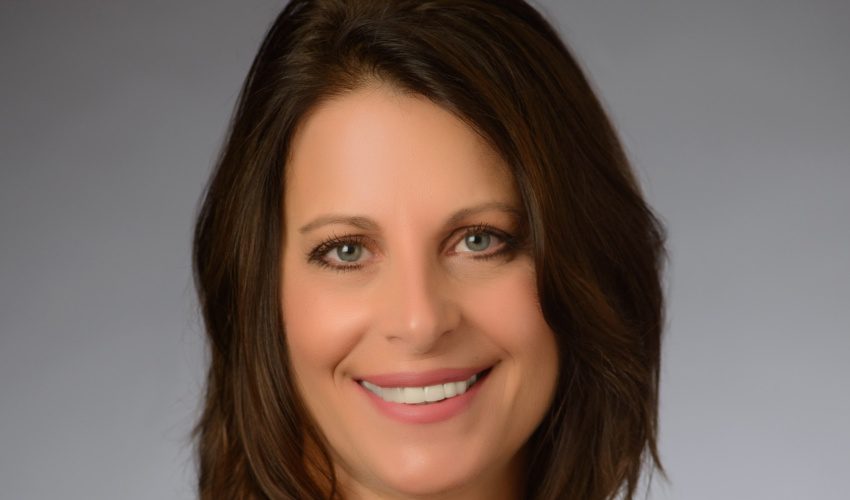Take inventory of your family business: Are you diversified beyond your business?
June 1, 2020
This paid piece is sponsored by the Prairie Family Business Association.
There’s nothing like a challenging time for making you take stock of your business – especially if your business and your family overlap.
Agatha Johnson knows that firsthand. She’s a general partner in her own family’s agriculture partnership and also owns Generations to Generations, a firm that works with other family businesses locally and nationwide.
Johnson will lead a virtual session at 11 a.m. June 10. for the Prairie Family Business Association titled “Taking Inventory of Your Financial Picture, Are You Diversified Beyond Your Business?”
We sat down with her for some insight and a preview of what to expect from the session.
What exactly do you mean when you say family businesses should think about diversifying beyond the business?
Diversified family owners feel more secure when they have multiple investments in various forms. Families that decide to have ownership in various companies is one level of diversification. A deeper level of diversification is having units, divisions or departments inside of each company. It is important that each company and each unit inside of each company has an intentional focus to stand on its own two feet. Additionally, family owners that have individual assets and investments beyond the business gives the freedom to manage the transition to another generation because they are not solely reliant on the sale of the business.
If a family has decided to have a portfolio of various companies, entrusting unit management to manage them, then each one can still have an intentional focus. This could bring in various talent and expertise through family or non-family (scaling) to diversify management. With various units and proper management in each unit, it is possible the company’s stock price doesn’t gyrate as much – lessening speculative temptations to just sell.
Scaling talent – investing in talent – in a company with family or non-family members is another way to diversify a company in order to grow various units or multiple businesses. To further the diversification for families, having a personal portfolio that is made up of investments beyond the business or businesses will ease the strain on a company and the family as well as open up options for the family during the exit of a family member. The primary advantage of family business diversification and personal diversification is that it can help families stay committed to the business for generations rather than if their personal wealth is tied up in one business only. A portfolio strategy for families that own a business or businesses plus personal investments will open the opportunities up and provide possibilities.
What are some of the key elements of family business you think families ought to be focusing on during this uncertain time?
This is a great question. My first thought is monitoring your own fear and resist the temptation to go to a defensive posture only with your business. No crisis is an isolated, neatly contained incident, and the COVID-19 outbreak is exceptional by any standards. It comes with extreme scope and levels of uncertainty and well beyond the experience of most business leaders today. Here are the key elements that I have experienced and seen that help to get through uncertain times.
- Family: Support each other. Be OK to discuss fears and to be vulnerable. Pay attention to each other’s mental well-being and find time to be family only. Find your blessings every day. Take time for yourself.
- Human capital: Be vulnerable and listen without interrupting your employees. This means become aware and learn how others see you and experience you as a leader. Conquer this current challenge by being courageous. Try not to allow the current work challenges, social distancing and negatives to wear you down daily. Have a focus in the workplace on safety with effectiveness, to be bold, compassionate and rise above all of the fears and unknowns. Continue to lead – grow as a leader during this time and help others to grow as leaders during this time. Be innovative by discussing what is challenging you during this time and how can you use it to be better. Communicate during this time so there is a meaningful and lasting change for your culture, yourself and others.
- Society and philanthropy: We hear many fearful stories; however, there are many great stories of others lending a helping hand. To continue with courage during this time, how can you and or your company support the community we are in by giving while being safe and social distance? The investment in this area will go far beyond the time you take to brainstorm. It will show your values and what you stand for as a leader. Your courage will be contagious to others and push your brand out even more.
- Financials: As a resource for all of the above, how are you managing the stewardship of your dollars? What does your financial policy say and have you positioned yourself for downturns? This is a great time to evaluate how money flows through your business system and your family system. Is this an opportunity to invest or reassess what to eliminate? What is your policy for handling money, and what is your bias for the business and personally? Are you forward-thinking and forecasting, or are you in a defensive mode and tightening the belt only? Become aware of your own challenges or beliefs of money. Be honest with yourself.
- Structures: Your business, your family. For your business, how is it owned? How are you structured to work? Are there clear policies in place for a crisis or continuity plan? Are there holes in this? Who will take over your business if you cannot be there? What about your family plan? What is your plan to pivot swiftly if suppliers aren’t available? Are you being innovative to potentially diversify? How do you personally own your assets? Engage your employees, and engage your family. The internet has been a saving grace for many. What does your cybersecurity look like for your business? For your family?
You assist many families as a peer group and family facilitator through the Prairie Family Business Association. What are some themes you’re seeing emerge from businesses in recent months, and how are you addressing those?
Yes, fear and shock. The grip that both will take on a business and a family can be devastating if not talked about and addressed. By not talking, it means I will not show others my fear. I will look strong. The reality is it will show up in other ways – either by being silent or by being violent with your tone and how you handle the challenge. Bringing these conversations to the table is critical. This is not a crisis that will be gone tomorrow nor in a month or potentially longer. We do not know. So let’s be real about it and discuss it and ourselves. This is concerning – this is real. Being courageous is having the conversations. If we don’t, we will spend more time managing the behaviors that come from the fear of the unknown and the frustrations of potentially seeing dreams maybe not happening. I will quote from neuroscientist Antonio Damasio that “We are not thinking machines. We are feeling machines that think.”
You also help a lot of families on their generational exit strategies. Are there ways families might be able to adjust their approach but still continue planning during this economically challenging time?
Absolutely. The exiting generation many times may want to step back in because of this challenge and not want to see the next generation go through this. It is OK to take a mentor’s role. It is just as important though to allow the next generation to problem-solve through this without the exiting generation solving it for them. What a great opportunity for growth.
The exiting generation can be part of conversations through family council meetings and engage the family in conversations to discuss challenges they went through or even generations before them. An example of a great outcome from stories I have heard was how one family went from doing one business to doing another due to the need to generate cash flow, which was in the Depression of the ’30s. From this, today they have a tremendous, thriving second and third business in multiple states. Sharing stories is a way to brainstorm and innovate.
You will go from fear and a holding pattern to courage and innovation while building deeper family relationships.
Times like these also are a good chance to reconsider our definition of “wealth,” which you talk about in some of your work. How might families want to rethink this concept?
So often, people will define wealth by the dollar sign of their net worth. We define wealth by looking at the financial capital and structured capital – how assets are owned – as a resource to support family capital, human capital, society and giving. Having healthy and strong family relationships, investing in others, investing in the communities that support our business and family, and giving beyond dollars, which hits your soul, creates a strong wealth balance statement.
Are there some common conflicts you see in family businesses during times of challenge, and how do you suggest handling them?
Many times when there is conflict that has not been addressed, stress will only exaggerate it regardless of what the area is. The most discussed topic is money because it is a very important resource. Some families may feel they cannot seek out or hire an adviser/consultant to help because of the expense, which they feel is not an immediate need and should be put on hold.
The rethinking on this is invest in yourself, your family and business. This is an investment, and what better way to help resolve and grow than to invest for you and your family’s future, which is priceless. This help is there to become part of a think tank for you and provoke conversations beyond what you normally would have.
What can families expect to take away from your upcoming session?
Diversification is about covering all areas of your life. It is about diversifying financially beyond your current business or businesses, how you are structuring your business and ownership of your assets, which is to support the most important areas of your diversified portfolio. Those are your family, human capital – investing in others – communities you work in and giving back. This is to be a thought-provoking session to go beyond where you are today and be courageous and innovative to go after your goals and make them happen.
My last thoughts? I believe in continuously challenging myself; I seek out my own coach and my own advisers and ask for feedback. If I don’t, I will only rely on myself and won’t grow beyond. I walk what I talk and believe wholeheartedly in making things happen by surrounding myself with other courageous people who are OK to be candid with me, and I thank them for it.
To register for Agatha Johnson’s upcoming session, click here.
The Prairie Family Business Association is an outreach center of the USD Beacom School of Business.








